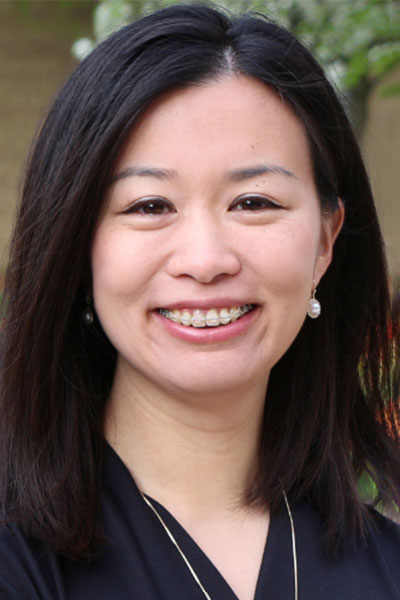
COVID-19 results from infection with SARS-CoV-2, but not all COVID-19-related lung disease is the same. Three major phenotypes of COVID-19-related lung disease have been identified, all with different clinical and histopathologic correlates and different treatment approaches.
“The course of COVID-19 is quite variable and not everyone follows a specific order of symptoms or severity, or is even on the same spectrum of disease,” said Bonnie Wang, MD, clinical assistant professor of pulmonary and critical care medicine at University of Michigan Health. “This is a particularly good example of a lung condition where a multidisciplinary approach between pulmonology, radiology, and pathology is essential in determining a diagnosis and next steps. COVID is not going away. We aren’t going to see a shortage of these patients any time soon.”
Dr. Wang will chair a CHEST 2022 session to explore the latest findings, COVID-19-Related Lung Disease: Histopathologic Correlates, Wednesday, October 19, from 9:15 AM – 10:15 AM, in Room 105AB. Speakers will focus on the variable presentations of acute COVID lung disease, post-COVID organizing pneumonia, and post-COVID fibrosis.
Kristine E. Konopka, MD, associate professor of thoracic pathology at the University of Michigan Medical School, will concentrate on the diverse spectrum of lung pathology that can result from SARS-CoV-2 infection. David L. Smith, MD, associate professor of clinical radiology, clinical medicine, and cell biology and anatomy at the Louisiana State University School of Medicine, will explore the radiographic correlates in COVID-19 disease. Dr. Wang will discuss both the spectrum of COVID-19, from acute clinical presentations to chronic interstitial lung disease (ILD), and the treatment of SARS-CoV-2 subacute and chronic ILD.
Because COVID is such a variable disease, Dr. Wang said, a multidisciplinary approach can improve clinical management.
A multidisciplinary group of pulmonologists, radiologists, and pathologists, for example, can help identify a subset of patients who have developed organizing pneumonia after an initial COVID infection, which is an inflammatory condition that may benefit from corticosteroids. Multidisciplinary discussion is key when identifying patients who have developed ILD. Some patients develop new onset fibrosis post-COVID, and others are found to have had ILD before COVID.
“When we see pulmonary fibrosis, we have traditionally thought of that as permanent,” Dr. Wang said. “But there have been anecdotal reports that COVID-related pulmonary fibrosis may not be permanent. On the flip side, we see other patients who have progressive fibrosis after COVID. It’s helpful to have a discussion around whether we need to watch people longer to see if their fibrosis goes away.”
The reality, she added, is that patient care post-COVID-19 still involves more questions than answers and more uncertainty than clear prognoses.
“We are seeing fewer cases of COVID acute respiratory distress syndrome, but we are still getting referrals and questions about post-COVID care,” Dr. Wang said. “It can be helpful to discuss the uncertainties that we are all facing every day.”



